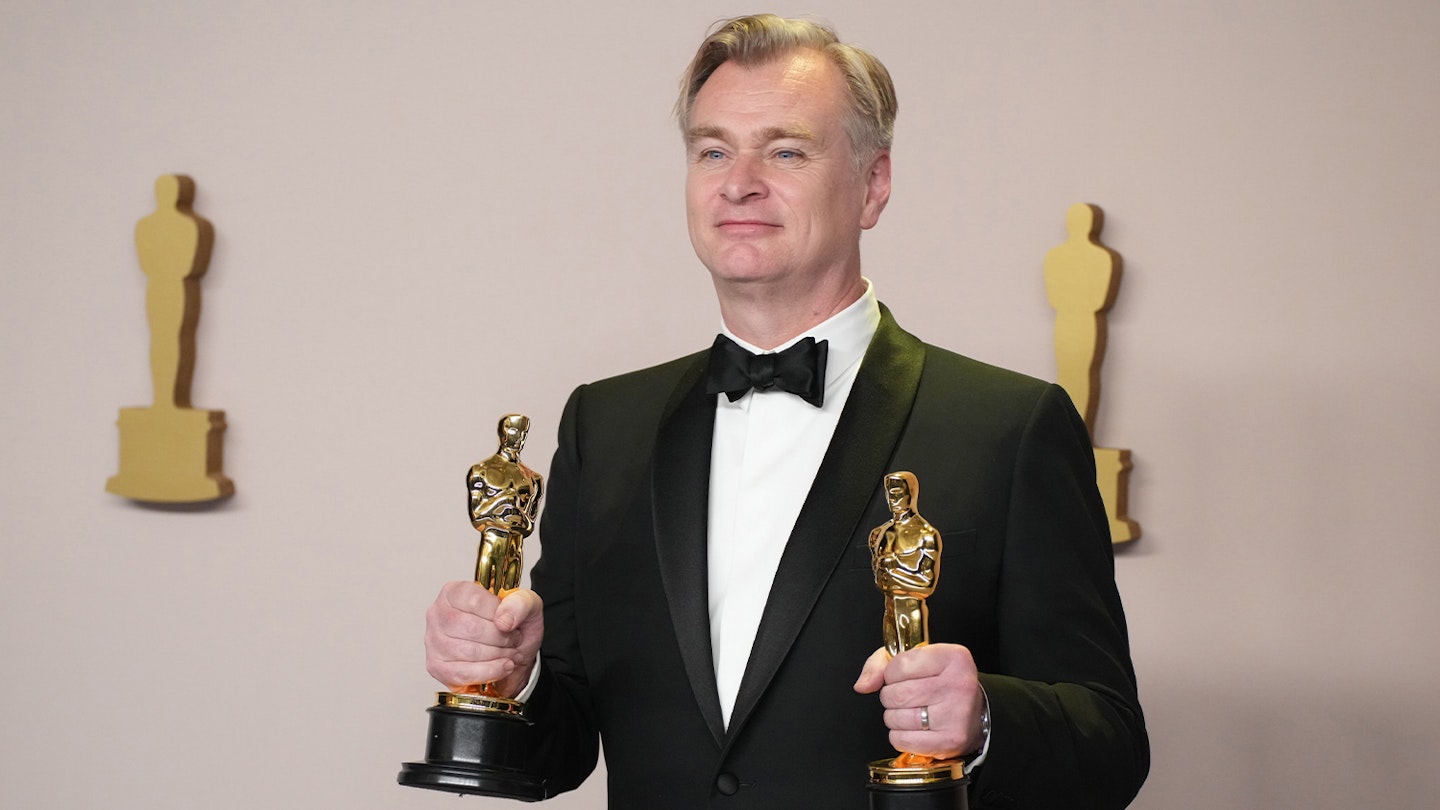Few filmmakers can boast a filmography like Christopher Nolan. The legendary director has risen to all-time-great since his arrival in the ‘90s, moving from cerebral indie fare like Memento and Following, to none-more-ambitious brain-twisting blockbusters like Inception and the Oscar-dominating Oppenheimer. Factor in one of the greatest superhero trilogies of all time with the Dark Knight movies, bold originals like Interstellar and Tenet, and instant-classic thrillers like The Prestige and Dunkirk, and you have a body of work for the ages. And as the director tells Empire, none of it worked out quite how he expected.
For Empire's Christopher Nolan Special Collector’s Edition, we sat down with Nolan – and his producing partner and wife Emma Thomas – for a major new career-spanning interview, looking back on everything they’ve achieved. For such a meticulous filmmaker, it’ll be no surprise that Nolan always had a plan. “As a young man, I had a list of, however many I’d worked out, 12 or 13 films... I had a lot of ideas and a lot of very specific things that I was going to do. And I look back and I haven’t done any of them; they all changed,” he laughs. “When you plan ahead too far in the movie business, you’re not taking into account the shifting sands of culture under your feet… [Cinema] evolves. And part of your job as a filmmaker is to be open to being part of that evolution.” It’s undeniable that Nolan’s films have pushed that cinematic evolution significantly – even if it meant not following his initial plans. “That’s been tremendous fun,” he says. “It would have been very boring to have done things exactly the way I thought I was going to do them.”
For Nolan, driving the art form forward has always been one of his aims. “You’re trying to add something to the body of work of movies, generally. You’re trying to do something a little bit different,” he says. “Even if it’s a few things you’ve seen before, you’re trying to help evolve the language with other filmmakers of your generation.”

While he started on independent films, he later entered the studio system, and soon found himself in charge of sizeable budgets and significant resources. “As the films got bigger, it started to feel more and more like driving an oil tanker rather than a speedboat,” he reflects. “I’d be standing there with my [director of photography] looking in one direction, then we’d spin around and say, ‘What if we look in the completely other direction?’ And then you’d see 50 people scrambling to run behind you, this sort of giant, long tail of people that you have in production. And so that’s the challenge.”
Even on his most groundbreaking projects, though – including Oppenheimer, which banked a billion at the box office and swept the Oscars this year – Nolan has fought to keep his working methods as intimate as they were when he began. “Over the years we’ve found ways to work with people who understand that we want to use that machine in a very nimble way,” he explains. “Oppenheimer was one of the best experiences we had like that, because we made the film very, very quickly. It had a very large cast, a lot of ambition, but we really powered through and did it in a really spontaneous manner.” It couldn’t be clearer: cinema is well and truly safe in Nolan’s hands.

Read Empire’s full all-new interview with Christopher Nolan and Emma Thomas in the Christopher Nolan Special Collector’s Edition issue – an entire magazine taking a deep-dive through Nolan’s complete filmography, with set visit reports, interviews, spoiler breakdowns, and much more. Read here for more info on all the goodies inside. Find the issue on newsstands now, or order a copy online here.
